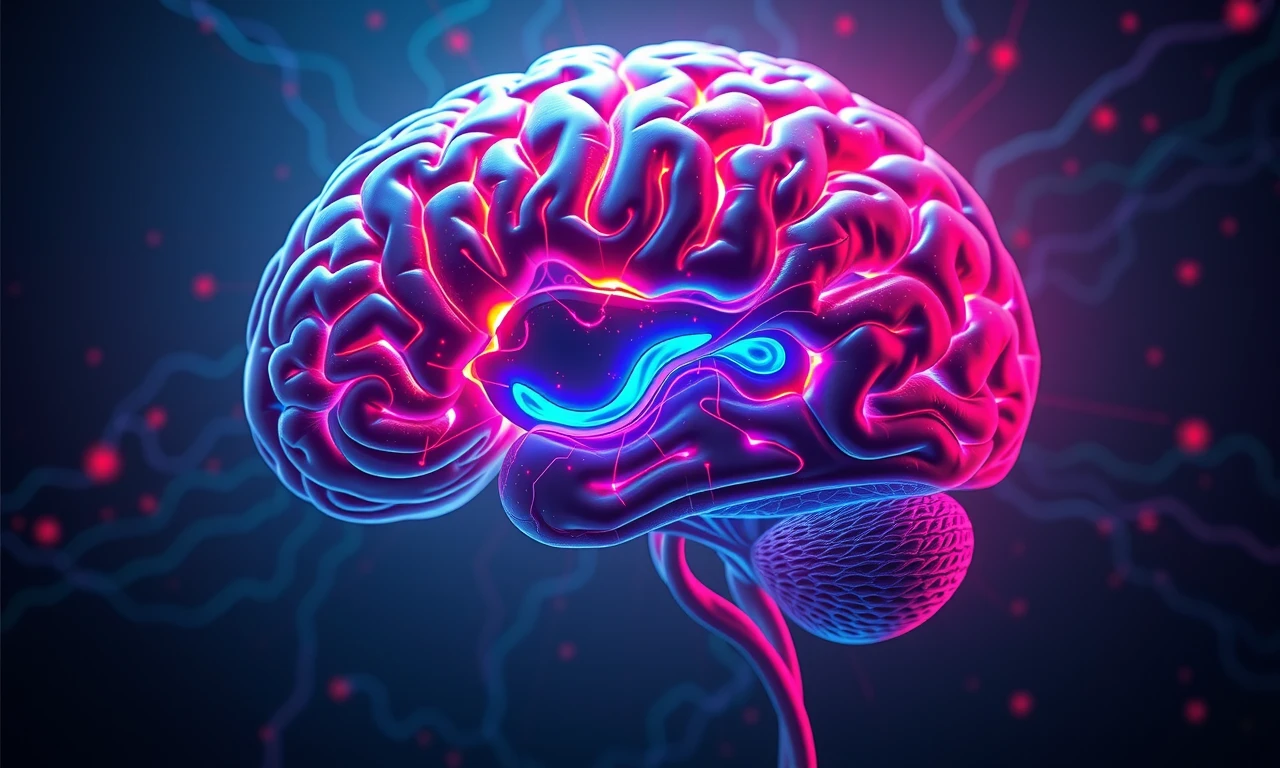Have you ever felt lost in a whirlwind of sensations, unable to pinpoint your experiences? You’re not alone. Many grapple with identifying their emotions, a crucial aspect of self-awareness. This struggle manifests as overwhelming unspecified feelings or emotional numbness. Studies suggest up to 60% of adults face difficulties recognizing and labeling their emotional states. This puzzle stems from various factors, including childhood experiences, neurological conditions, or learned patterns of emotional suppression. Understanding these roots is the first step towards greater emotional clarity and enhanced well-being. Developing awareness and improving emotional recognition can lead to better mental health and stronger relationships.
Understanding Emotional Awareness
Emotional awareness, the cornerstone of psychological well-being, enables us to recognize and understand our feelings. This crucial skill exists on a spectrum, with some effortlessly navigating their inner landscape while others struggle to identify even basic emotions. Developing awareness enhances communication, decision-making, and relationships, allowing thoughtful responses to life’s challenges. The journey towards emotional clarity often involves introspection, practice, and sometimes professional guidance. By honing this skill, we can better manage stress, improve mental health, and foster deeper connections.
Understanding our emotions empowers us to harness their wisdom, turning obstacles into growth opportunities. Cultivating emotional intelligence through mindfulness, journaling, and expanding our emotional vocabulary can significantly boost our ability to process and regulate feelings, leading to improved coping mechanisms and overall well-being.
Common Reasons for Difficulty in Identifying Emotions
Understanding our inner world can be challenging, with several factors contributing to difficulties in emotional identification:
- Alexithymia: A condition characterized by struggles in recognizing and describing feelings
- Early life experiences: Childhood trauma, abuse, or neglect can impair emotional development
- Neurological factors: Certain brain structures influence emotional processing and recognition
- Learned behaviors: Emotional avoidance or dissociation as coping mechanisms
- Mental health conditions: Anxiety, depression, autism, and PTSD can affect emotional awareness
- Cultural influences: Societal norms may discourage emotional expression
- Brain injury or neurological disorder
- Limited emotional vocabulary: Inability to articulate feelings precisely
- Lack of emotional education: Insufficient guidance in understanding emotions
- Cognitive biases: Distorted thinking patterns affecting perception
Improving emotional intelligence through therapy, mindfulness, journaling, and developing empathy can enhance emotional insight and regulation, fostering better coping skills and support systems. These strategies promote self-awareness and healthier emotional responses.
Alexithymia: When Emotions Are a Mystery
Imagine a world where feelings are locked away, inaccessible even to oneself. This is the reality for those experiencing alexithymia, a complex psychological phenomenon affecting up to 10% of the population. Individuals with this condition struggle to identify and describe their emotions, often feeling disconnected from their inner experiences. Unlike typical emotional processing, alexithymia manifests as a profound difficulty in recognizing and articulating feelings, leading to challenges in interpersonal relationships and self-understanding.
This emotional blindness can result in heightened physical sensations, as the body attempts to communicate what the mind cannot process. Despite its prevalence, alexithymia remains largely misunderstood, often mistaken for lack of empathy or emotional depth. In reality, it represents a unique way of experiencing the world, where emotions exist but remain frustratingly out of reach. Alexithymia research continues to unveil its complexities.
The Impact of Childhood Experiences
Early life experiences profoundly shape our emotional landscape, influencing how we perceive and express feelings well into adulthood. Children facing adverse circumstances often develop protective coping mechanisms that can hinder emotional growth later. These adaptations may manifest as difficulty recognizing or articulating feelings, leading to challenges in relationships and self-understanding.
However, the impact of childhood experiences on emotional awareness isn’t deterministic. With support and self-reflection, individuals can cultivate greater emotional literacy, fostering resilience and deeper connections. Understanding this link empowers adults to compassionately explore their emotional patterns, paving the way for healing and personal growth. By acknowledging the role of early experiences, we open doors to enhanced emotional well-being. Even those struggling with alexithymia can benefit from targeted interventions, gradually improving their ability to identify and express emotions.
Neurological Factors and Emotional Processing
The intricate neural choreography within our brains orchestrates our emotional experiences, shaping perception and processing. The amygdala, a small almond-shaped structure, serves as the emotional hub, swiftly assessing stimuli for threats or rewards. Concurrently, the prefrontal cortex, our brain’s executive center, aids in regulating and interpreting these emotional signals. This delicate equilibrium can be disrupted in conditions like autism spectrum disorder, where neural connectivity differences may lead to challenges in emotional recognition and expression.
Similarly, individuals with post-traumatic stress disorder often experience heightened amygdala activity, resulting in intense emotional responses to triggers. Understanding these neurological factors provides crucial insights into why some struggle with emotional identification, paving the way for targeted interventions. These therapies can help rewire neural pathways, potentially improving emotional processing abilities. Recent studies on alexithymia have further illuminated the complex relationship between brain structure and emotional awareness, offering new avenues for research and treatment.

Signs You Might Struggle with Emotional Identification
Recognizing emotional challenges is crucial for self-awareness. Signs indicating difficulty in identifying emotions include:
- Feeling overwhelmed by undefined sensations or experiencing unexplained physical symptoms
- Struggling to articulate feelings beyond basic descriptors like “good” or “bad”
- Reacting inconsistently to similar situations or having sudden mood shifts without clear triggers
- Frequently feeling emotionally “blank” or disconnected from personal experiences
- Difficulty understanding others’ emotional responses or relying heavily on others to interpret your emotions
- Tendency to intellectualize experiences rather than feel them
- Inability to distinguish between different emotional states, such as confusing anxiety with excitement
If these resonate, exploring emotional awareness techniques or seeking professional guidance could be beneficial. While experiencing these signs doesn’t necessarily indicate alexithymia, addressing them can significantly enhance overall emotional well-being and interpersonal relationships.
The Consequences of Poor Emotional Awareness
Poor emotional awareness profoundly impacts life, causing heightened stress and interpersonal conflicts. This disconnect leads to impulsive decisions, as underlying emotions go unrecognized. Relationships suffer when communication breaks down, leaving partners feeling misunderstood. Mental health challenges, including anxiety and depression, may emerge from unprocessed emotions. Physical health can decline due to chronic stress. Career progression may stall when emotional intelligence is lacking, hindering leadership and collaboration.
Ultimately, poor emotional awareness creates a sense of disconnection, impacting life satisfaction and personal growth. Addressing this through targeted strategies or professional help can significantly improve well-being. Those with alexithymia often face even greater challenges, struggling to identify and articulate their feelings, which can exacerbate the consequences of poor emotional awareness across various life domains.
Strategies to Improve Emotional Awareness
Enhancing emotional awareness requires a multifaceted approach. Practice mindfulness, focusing on present sensations without judgment. Engage in regular journaling to explore feelings. Expand your emotional vocabulary with nuanced terms. Try body scans to connect physical sensations with emotions. Seek feedback from trusted friends. Explore art or music as alternative channels. Read novels for diverse emotional insights. Experiment with mood tracking apps to identify patterns. Consider professional guidance if struggling with alexithymia. Remember, improving awareness is a gradual process requiring patience and consistent effort.
Mindfulness and Meditation Practices
Mindfulness and meditation offer powerful pathways to enhanced emotional awareness. By cultivating present-moment focus, these practices allow us to observe feelings without judgment, creating space for deeper understanding. Regular meditation can sharpen our ability to recognize subtle emotional shifts, fostering greater self-awareness. Simple exercises include the 5-4-3-2-1 grounding technique, engaging all senses to anchor us in the present.
Loving-kindness meditation, where we direct compassionate thoughts towards ourselves and others, nurtures emotional intelligence. Even brief daily sessions of mindful breathing can significantly improve our capacity to identify and process emotions. As we develop this skill, we may find ourselves better equipped to navigate complex emotional landscapes, leading to improved relationships and overall well-being. Consistency is key in reaping the full benefits of these transformative practices.
Journaling for Emotional Clarity
Journaling offers a private space to untangle complex feelings, bridging conscious and subconscious minds to reveal hidden emotional patterns. This practice reduces stress, improves self-awareness, and enhances problem-solving skills. Begin with prompts like “What emotions am I experiencing now?” or “How did a recent interaction make me feel?” Experiment with stream-of-consciousness writing to bypass internal censors. As you develop this habit, you may notice increased emotional clarity and deeper self-understanding.
Journaling is a whispered conversation with our authentic selves, illuminating the shadowy corners of our emotional landscape. It’s a powerful tool for self-discovery, allowing us to explore our feelings without judgment.
This practice can be particularly beneficial for those struggling with alexithymia, offering a safe avenue for emotional expression and identification.
Expanding Your Emotional Vocabulary
Expanding your emotional vocabulary unlocks a treasure trove of self-understanding. By enriching our lexicon of feelings, we gain precision in articulating our inner world, fostering deeper connections and self-awareness. Consider this table of common emotions and their nuanced variations:
| Basic Emotion | Nuanced Variations |
|---|---|
| Anger | Irritation, Frustration, Rage, Indignation |
| Joy | Elation, Contentment, Euphoria, Serenity |
| Fear | Anxiety, Dread, Apprehension, Trepidation |
| Sadness | Melancholy, Despair, Wistfulness, Grief |
| Surprise | Amazement, Astonishment, Wonder, Shock |
| Disgust | Revulsion, Aversion, Distaste, Loathing |
By exploring these nuances, we can better pinpoint our feelings, leading to more effective communication and emotional regulation. This expanded vocabulary is particularly beneficial for those grappling with alexithymia, offering a framework to identify and express emotions that may have previously felt elusive or indescribable. Practice using these terms in your daily reflections to enhance your emotional intelligence and self-expression.
Body Scan Techniques
Our bodies act as emotional barometers, signaling inner states through physical sensations. Body scan techniques unveil these hidden cues, fostering self-awareness. Find a quiet space and comfortable position. Close your eyes, focus on your breath, and slowly shift attention from toes upward. Notice sensations without judgment, acknowledging emotions that arise. You may discover surprising connections between physical feelings and emotional states. This practice enhances mind-body connection, allowing nuanced emotional recognition. Regular body scans can significantly improve emotional intelligence, even for those struggling with alexithymia. Consistent practice develops a deeper understanding of your emotional landscape, paving the way for better self-regulation and overall well-being. By tuning into bodily sensations, we unlock valuable insights into our emotional world.
The Role of Therapy in Emotional Discovery
Therapy offers a transformative journey into emotional self-discovery, providing a safe haven for exploring our psyche’s depths. In this setting, individuals find compassionate guidance to navigate their inner complexities. Various approaches, from psychodynamic to humanistic, offer unique pathways to enhanced emotional awareness. Cognitive-behavioral techniques unravel thought patterns obscuring emotional clarity, while experiential methods tap into bodily wisdom to unveil hidden feelings. Through skilled facilitation, therapists create an environment where emotions surface and are examined without judgment, leading to profound insights. This process helps individuals recognize and articulate long-elusive feelings.
For those struggling with emotional identification, therapy can be particularly illuminating, offering tailored strategies to bridge the gap between sensation and understanding. Even individuals with alexithymia can benefit significantly from interventions designed to strengthen mind-body connections and expand emotional vocabulary. Ultimately, therapy serves as a powerful tool for unlocking self-awareness and fostering personal growth in the realm of emotions.

Cognitive Behavioral Therapy (CBT) Approaches
Cognitive Behavioral Therapy (CBT) offers powerful tools for enhancing emotional recognition and expression. By examining the interplay between thoughts, feelings, and behaviors, CBT helps individuals identify distorted thinking patterns that cloud emotional awareness. Through guided exercises, clients learn to challenge automatic negative thoughts, replacing them with more balanced perspectives. This process unveils hidden emotions, allowing for clearer identification and articulation of feelings. CBT techniques, such as mood logs and thought records, provide structured methods for tracking emotional experiences, fostering greater self-awareness over time.
By developing metacognitive skills, individuals gain the ability to step back and observe their emotional processes objectively. This heightened awareness enables more accurate emotional labeling and expression, even for those struggling with alexithymia. Ultimately, CBT equips individuals with lifelong skills for navigating their emotional landscape with confidence.
Emotion-Focused Therapy Techniques
Emotion-Focused Therapy (EFT) offers a transformative approach to enhancing emotional awareness and regulation. This technique emphasizes exploring core emotions as catalysts for change. EFT practitioners guide clients through identifying, experiencing, and expressing feelings in a safe environment. Key strategies include chair work, where individuals engage in dialogues with different aspects of themselves, fostering deeper emotional insight. Focusing involves tuning into bodily sensations to access underlying emotions. EFT also employs empathic reflection, helping clients articulate complex feelings.
By addressing emotional avoidance and promoting adaptive responses, EFT equips individuals with tools to navigate their inner landscape effectively. Even those struggling with alexithymia can benefit from EFT’s structured approach to emotional discovery and expression, making it a valuable resource for enhancing self-awareness and interpersonal relationships.
Building Emotional Intelligence
Emotional intelligence, a cornerstone of personal growth, encompasses the ability to recognize, understand, and manage our own emotions while navigating social interactions with empathy. This multifaceted skill set includes self-awareness, self-regulation, motivation, empathy, and social skills. At its core, emotional intelligence intertwines deeply with emotional awareness and identification, serving as the foundation for developing these crucial abilities. By honing emotional intelligence, individuals unlock the potential to decipher complex emotional states, articulate feelings with precision, and respond thoughtfully to life’s challenges.
This journey of self-discovery not only enhances personal well-being but also fosters more meaningful relationships and effective communication. Even those grappling with alexithymia can benefit from targeted emotional intelligence training, gradually building a bridge to their inner emotional landscape. Cultivating emotional intelligence is a lifelong process that yields profound rewards in personal and professional spheres.
Practicing Emotional Regulation
Mastering emotional regulation is crucial for navigating life’s ups and downs. Once you’ve identified your emotions, these strategies can help you manage them effectively:
- Practice the 5-4-3-2-1 grounding technique to anchor yourself in the present moment
- Engage in deep breathing exercises to activate your body’s relaxation response
- Visualize a calming scene or safe space to shift your mental state
- Use positive self-talk to reframe challenging situations
- Engage in physical activity to release tension and boost mood
- Try progressive muscle relaxation to release physical and emotional stress
- Implement a ‘feelings check-in’ routine throughout your day
- Create art or music as an outlet for emotional expression
- Practice mindful observation of your emotions without judgment
- Keep a mood diary to track emotional patterns and triggers
- Engage in expressive writing to process complex feelings
Remember, emotional regulation is a skill that improves with consistent practice. Be patient with yourself as you develop these techniques, and don’t hesitate to seek professional guidance if needed, especially if you suspect alexithymia or other emotional processing challenges.
Overcoming Barriers to Emotional Recognition
Overcoming emotional barriers demands courage and persistence. Many struggle with vulnerability, fearing judgment or rejection. Ingrained habits of suppression, often rooted in past experiences, create formidable walls between us and our feelings. Breaking through involves challenging long-held beliefs and embracing discomfort. Mindfulness practices offer a gentle path, allowing us to observe emotions without judgment. Gradually expanding our comfort zone through small, intentional steps builds emotional resilience. Seeking support from trusted friends or professionals provides invaluable guidance.
Remember, progress may be slow, but each small victory is significant. Embracing self-compassion throughout this journey is crucial as we learn to navigate our inner landscape with kindness and curiosity. Even those grappling with alexithymia can make strides in emotional recognition with patience and tailored strategies. Professional help may be beneficial for persistent difficulties.
The Connection Between Physical Health and Emotional Awareness
Physical health and emotional awareness are deeply interconnected. A well-nourished body enhances emotional perception, with nutrients like omega-3 fatty acids supporting brain function and mood regulation. Regular exercise releases endorphins, improving our ability to recognize feelings. Quality sleep is crucial for emotional reset, aiding regulation and interpretation. Sleep deprivation can blur emotional boundaries, making identification challenging. Hydration levels influence cognitive function and mood stability. Even subtle dehydration impacts emotional clarity.
Mindful eating fosters body awareness, indirectly enhancing emotional attunement. Prioritizing physical well-being creates a foundation for emotional intelligence. This holistic approach supports those struggling with emotional recognition, including individuals with alexithymia, offering a pathway to improved overall well-being through the mind-body connection. By nurturing our physical health, we cultivate a richer emotional landscape.
Embracing the Journey of Emotional Discovery
Embarking on emotional discovery is a transformative journey filled with profound insights and growth. Embrace each step, recognizing every small victory. Patience is key as you navigate your inner world. Remember, emotional awareness is a lifelong expedition, not a destination. Even those with alexithymia can make remarkable progress. Celebrate your achievements, be kind during challenges, and trust your capacity for growth. Your commitment to understanding emotions will enrich your life beyond imagination. This journey of self-discovery opens doors to deeper connections, improved decision-making, and enhanced overall well-being.
Frequently Asked Questions About Emotional Identification
Can trauma cause difficulty in identifying emotions?
Trauma can impair emotional identification by triggering protective mechanisms that disconnect individuals from their feelings. This emotional numbing, while initially protective, may persist, hindering the ability to recognize and process emotions effectively. Even without alexithymia, trauma survivors often struggle with emotional awareness.
How can I improve my ability to recognize and name my feelings?
Practice daily mindfulness meditation and keep a feelings journal. Expand your emotional vocabulary and engage in self-reflection. Seek feedback from friends about your emotional expressions. Explore art or music as emotional outlets. Even those with alexithymia can benefit from these strategies.
Is it normal to feel emotionally numb sometimes?
Occasional emotional numbness is common, serving as a defense during stress. While persistent numbness may signal issues, temporary detachment can be normal when processing intense experiences. Even those without alexithymia may encounter periods of emotional flatness.
When should I seek professional help for emotional awareness issues?
Seek professional help if emotional difficulties persistently impact daily life or relationships. When self-help strategies prove ineffective, or you suspect alexithymia, consulting a mental health expert can provide tailored guidance for navigating complex emotional landscapes.

Gay Hendricks, born on January 20, 1945, is a renowned American psychologist and author specializing in personal growth, relationships, and body intelligence. He earned his Ph.D. in psychology from Stanford University in 1974 and later taught at the University of Colorado, where he became a full professor in the Counseling Psychology Department. During his 21-year tenure there, he founded The Hendricks Institute.













